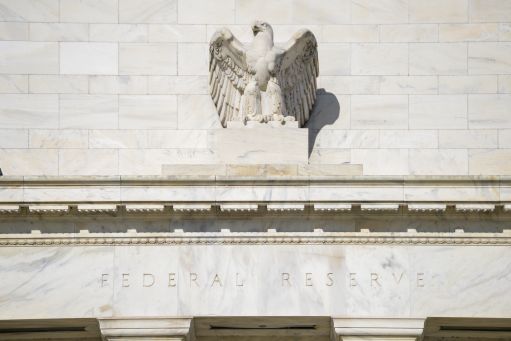Firms With Overseas Networks Had an Early Warning About COVID-19
Companies with networks in China and Italy responded to the pandemic and enacted work-from-home policies faster than local governments.

As the COVID-19 pandemic began to spread from early hotspots in China and Italy, US health officials raced to respond to the developing crisis.
But according to research by accounting professor Lisa Yao Liu, US firms with business interests in those countries had a head start.
In a new working paper, Liu and co-author Shirley Lu of the University of Chicago, found that US firms collected, verified, and used information about the virus gathered through their business networks in China and Italy. This allowed them to implement their responses faster than local governments in the US.
“At the beginning there was lots of misinformation,” Liu says. “But the firms we studied knew what was going on, such as how fast the virus could spread, and how to implement safety measures. The information was transmitted more effectively within the firm organization.”
The authors find that areas that received COIVD-19 updates from their business networks in China and Italy had higher ratios of employees working from home before officials recommended health strictures in their particular locales. They also show that there was a lower rate of COVID-19 infection in those same areas.
As noted in the paper, international companies began to discuss a response to the virus early in the spring of 2020, with firms such as Starbucks mentioning strategies during their second quarter earnings calls.
“Starbucks said that their experience in China helped them navigate some of the challenges and assist other countries with their response,” Liu says.
Using the S&P 500 as a subsample of their study, the researchers determined that 309 of those firms were distributing information about COVID-19 via press releases or discussions on conference calls with investors, analysts, or business partners.
After ascertaining which companies had relevant information about the virus, they examined the impact that information had on locality that is home to a company that has business networks with China or Italy.
Liu then weighed the impact of the news and insights gleaned from those companies on determining if the US firms in their network had enacted work-from home-policies.
“We found that before US cities imposed lockdowns, areas with more information-exposure firms have more people staying at home,” Liu says.
“That was related to the companies’ work from home policies rather than government policy,” Liu says.
The paper also considers what drove these firms to behave as corporate citizens: public good or the bottom line?
As the research demonstrates, allowing people to work from does not necessarily mean companies are sacrificing profit.
“After all, if companies ask their employees to work from home, this is also a way to mitigate human capital risk,” Liu says. “Employee health is very important to that.”
Plus, firms that publicly announce their safety measures are also demonstrating good corporate citizenship. In addition, the perception of resilience is strategically beneficial, especially considering that the pandemic has made calculating finances more difficult.
Ultimately, Liu says the paper focuses on the final result – decisive action on public health protocols, as opposed to a company’s motivation for responsible social behavior.
“In the end, we wanted to show that these actions led to better social outcomes and behavior regardless of the motivation,” she says.
Liu emphasizes that their research is not meant to imply that information from private businesses should serve as competition to government announcements on public health measures.
“Companies are not complete substitutes for government policy,” she says. “But they may complement each other.”
About the Researcher
More Features

Value Investing: How CBS is Staying Ahead of the Curve
Learn how Columbia Business School is updating its acclaimed value investing curriculum to align with a rapidly changing financial landscape.

The Fed and Interest Rates: Is Flexibility the Best Approach?
Professor Pierre Yared talks about his recent research, which looks at the rising popularity of guiding monetary policy through target-based rules.

Interest Rates and Inflation: What’s Next for the Federal Reserve?
Professor Pierre Yared describes why the U.S. economy is unlikely to see an economic downturn comparable with the 1970s.

What Skills Should Finance Students Seek to Acquire in School?
I put this and other questions to four of my friends on the Street with different functional titles and backgrounds. Here are their thoughts.
Rise to the challenge.
The COVID-19 pandemic has changed the world of business, while bringing historical inequities and injustice into sharp relief.
Subscribe to Leading Through Change to receive the latest insights from Columbia Business School to help you navigate this unprecedented time.
